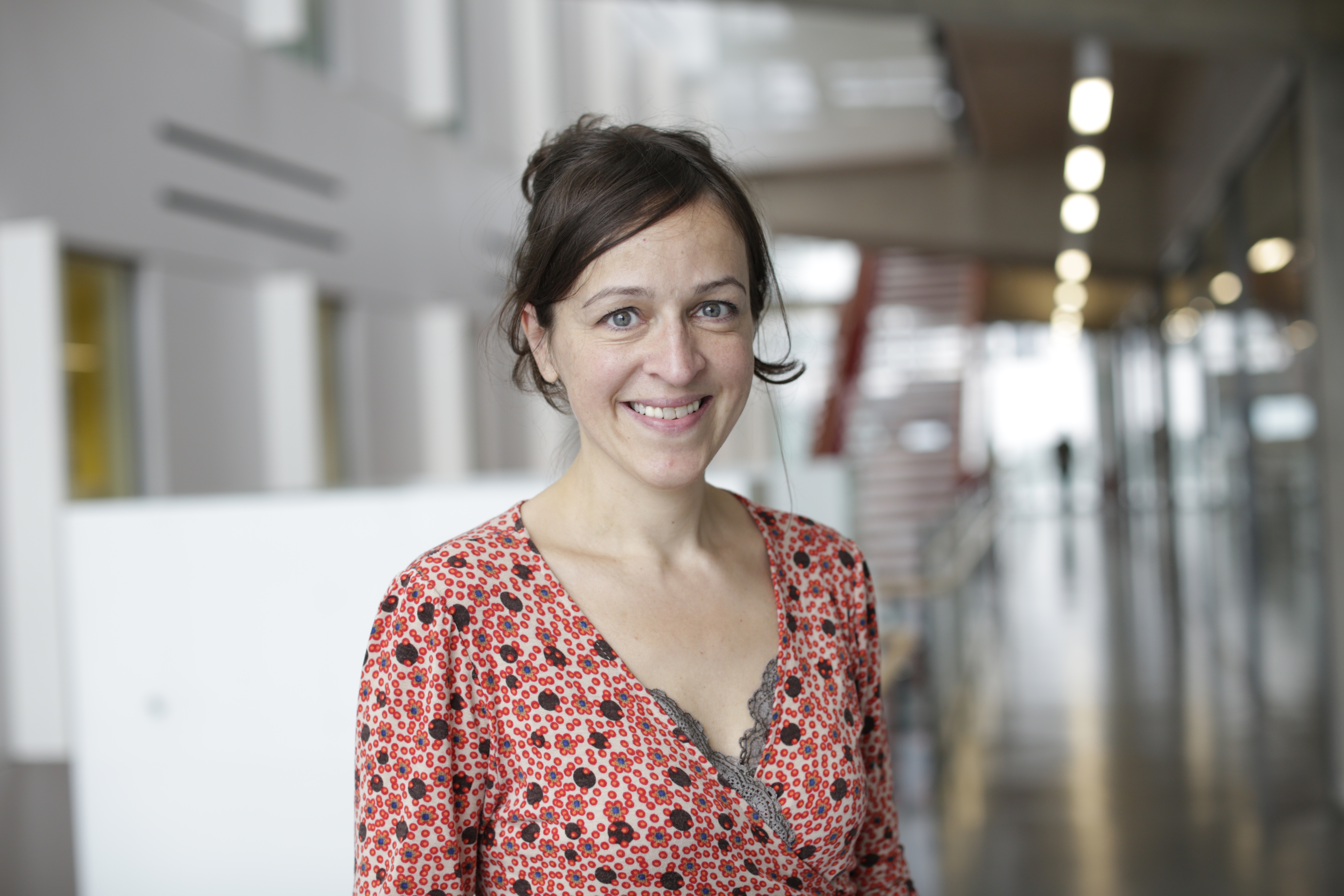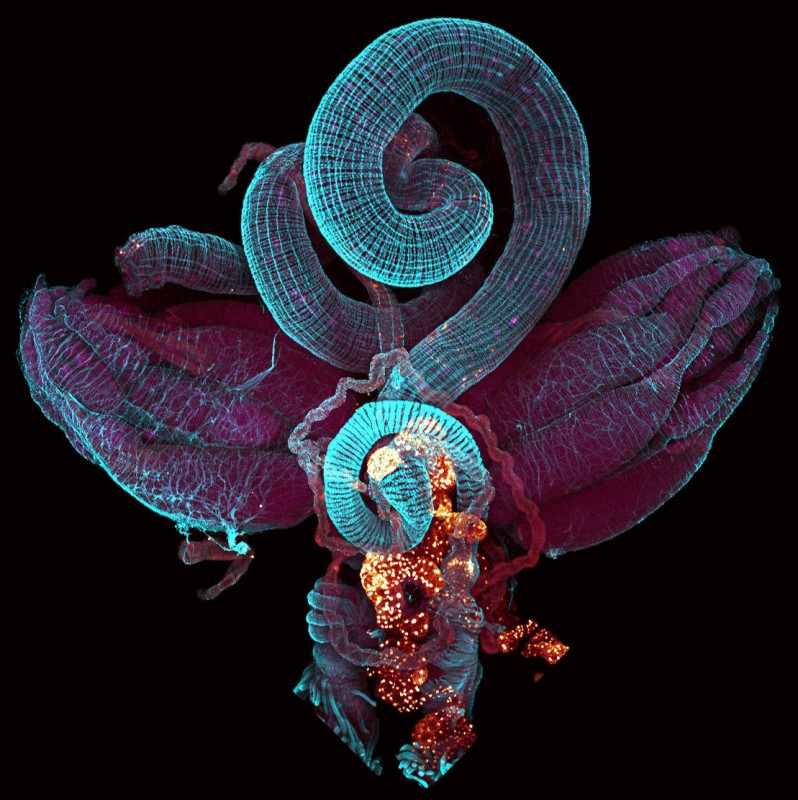M: 07711 016942
T: 0208 383 3791
E:
T: @MRC_LMS
By Helen Figueira
June 16, 2017
Time to read: 4 minutes
By Deborah Oakley

Irene Miguel-Aliaga has been elected as a member of the European Molecular Biology Organisation (EMBO) in recognition of her high quality research.
She is one of 65 new members announced today and joins “a group of more than 1700 of the best researchers in Europe and around the world”, according to EMBO.
“This is a highlight of my career and I’m really pleased. It’s a community vote of recognition on my laboratory’s research from across the whole EMBO community,” says Miguel-Aliaga, who was nominated by a fellow researcher then voted in by current members. “Everyone in my laboratory, past and present, should be proud because this represents all of their contributions throughout the years.”
Miguel-Aliaga leads the Gut Signalling and Metabolism group at the MRC London Institute of Medical Sciences (LMS), based at Imperial College London. The group uses fruit flies to explore how our brains and guts communicate. She says they pioneered the genetics of neurons in the guts of flies. Her laboratory’s research highlights include a study published in Nature on how organs in our body may have a sexual identity of their own, and a second, separate study, which shows that the intestine grows and changes how it handles fat during reproduction, which may help to explain why women do not need to “eat for two” during pregnancy because the intestine adapts to extract more energy from the same amount of food.
“Election to the EMBO Membership is recognition of research excellence, and I am pleased to welcome so many great scientists to our organisation,” says EMBO Director Maria Leptin. “We received more nominations than ever before during this election cycle, which pays tribute to the strength and diversity of the European life sciences.”

Forty per cent of those elected were women and new members have an average age of around 50, making Miguel-Aliaga one of the youngest elected. She explains how a laboratory can be like a building site and how she nurtures difference to improve her science, in an interview with Current Biology, published in May.
Today’s election builds on the support that Miguel-Aliaga received earlier in her career when she was elected to the EMBO Young Investigators Programme. According to EMBO, this aims to help young scientists to advance their research, promote their reputation internationally and ensure their mobility. Miguel-Aliaga will be formally welcomed as a member at the EMBO Members’ Meeting in Heidelberg in October.
Miguel-Aliaga joins fellow LMS researchers Luis Aragon, Amanda Fisher and Matthias Merkenschlager who are all EMBO members. An online directory of existing and new members is available here.
For more information, contact:
Deborah Oakley
Science Communications Officer
MRC London Institute of Medical Sciences
M: 07711 016942
T: 0208 383 3791
E:
T: @MRC_LMS
Alessandro Mineo, a post-doc in Miguel-Aliaga’s group, has been awarded an EMBO Long-Term Fellowship. The fellowship will pay Mineo’s salary for two years and allow him to explore in more detail how the guts of female flies change after mating. He wants to find out whether the muscles that surround the gut also increase in size during pregnancy.
Competition for the fellowship was high. “I was shocked to be chosen for an interview because they only select ten per cent of applicants,” said Mineo, who travelled to Marseille for the interview. “I was excited when I found out that I’d been selected.”